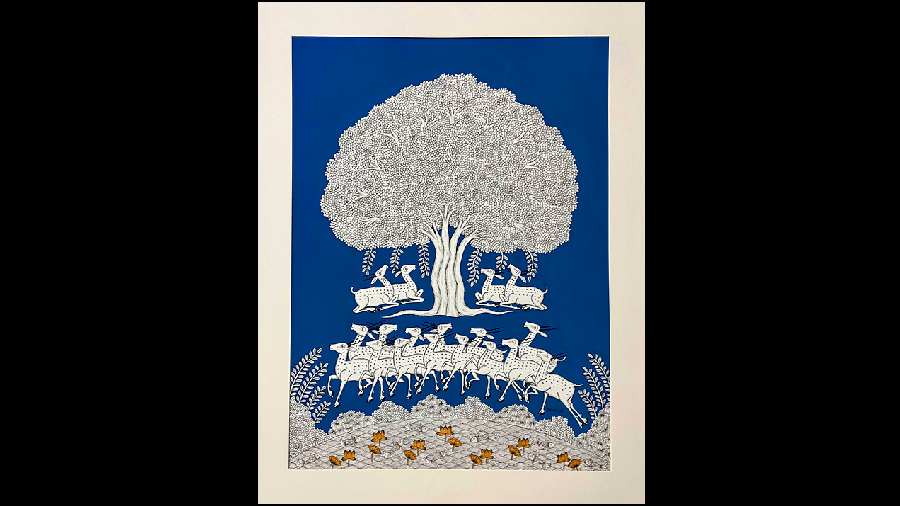Indian folk and tribal artists are at a crossroads as they are still deeply rooted in age-old traditions. Yet, those who have moved to cities either feel a strong urge to experiment like contemporary artists and with technology, or are tempted to produce works that will find a ready market. Their dilemma came to the fore in Spirit of India (Chapter II), which was conceptualised by Ina Puri and held at The Harrington Street Arts Centre from October 30 to November 26. Of the 15 participants, there can be no doubt about the skill of those who have stuck to conventions, but those who tried to break out of them seemed awkward at times.
Ajit Kumar Jha (Mithila, Bihar) celebrates India’s syncretic culture through his The Journey of Narmada. Rashmiranjan Mahapatra (Pattachitra, Odisha) displays his sense of humour in Kumbhakarna. The works of Rinku Baiga (Baiga, Madhya Pradesh) in vivid contrasting shades and Sita Meda (Bhil, Madhya Pradesh) have all the energy of Australian aboriginal art. The detailing in the two Matas (mother goddesses) by Sanjay Chitara (Mata ni Pachhedi, Gujarat) is quite fascinating. Santosh Kumar Das (Madhubani, Bihar) has found a wonderful metaphor for the protean nature of an artist, besides creating a strong, but spare, icon. Yet, his simpering Buddha on the Moon makes a travesty of innovation.
The trouble with the effort by Anwar Chitrakar (Pattachitra, Bengal) to update the traditions of Kalighat is that past masters have left behind such strong images that are difficult to emulate. In contrast, Chitrakar’s works are wishy-washy, forced, and, at times, anachronistic. Some are just weak copies of earlier master works. His sketch pen on paper work of a wriggling and writhing piscine world is, however, an exception.
The two Trees of Life (picture) by Kalyan Joshi (Phad, Rajasthan) demonstrate the technical finesse of traditional artists. His pen and ink work, Nature, is a tour de force with its giant tree that provides shelter to numerous birds and beasts.











